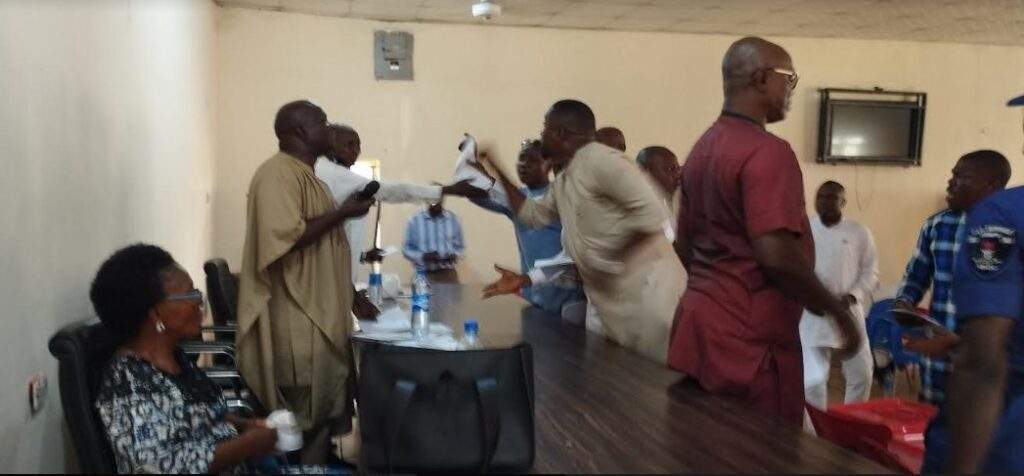The recent Inter-Party Advisory Council (IPAC) election in Enugu State was marred by a crisis, resulting in the emergence of parallel executives. The election, held at the state headquarters of the Independent National Electoral Commission (INEC), started peacefully but later spiraled into chaos during the accreditation process for voting.
The dispute among IPAC members regarding the electoral guidelines led to heated arguments, despite pleas from the electoral committee chairman, Uchechukwu Ogbonna, to proceed with the exercise. This impasse caused a delay of over three hours, ultimately leading the chairman to suspend the election until 3 pm.
Upon reconvening, the incumbent chairman, Hon Godwin Alor, and his supporters staged a walkout, while Hon Innocent Ezeoha’s faction participated in the election. Alor justified his boycott by citing violations of the IPAC Electoral Guidelines, specifically pointing out the absence of a required authorization letter for a representative of the PDP chairman to vote in the election. Alor accused the electoral officials from IPAC headquarters in Abuja of compromise and emphasized his continued chairmanship pending a proper election.
On the other hand, the election resulted in the selection of Obioma Nnamani of BOOT Party as the new IPAC chairman in Enugu State, with various other members filling executive positions. Nnamani described the election as free, fair, and credible, assuring inclusive leadership.
Despite the discord, the electoral committee chairman, Uchechukwu Ogbonna, deemed the disagreement as a demonstration of democracy, allowing every member to voice their concerns.
However, the election’s outcome has left a lingering atmosphere of uncertainty in the Enugu IPAC chapter, as rival factions lay claim to leadership positions. The standoff underscores the growing tension and power struggles within political organizations at the regional level, posing challenges to the harmonious functioning of electoral activities in Nigeria.
